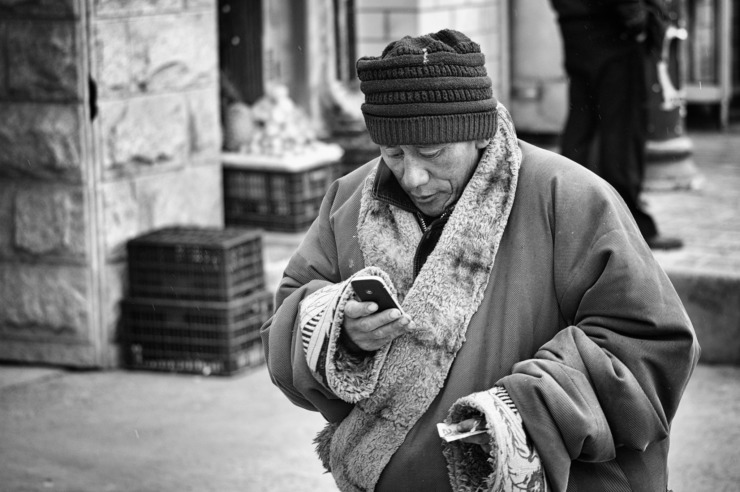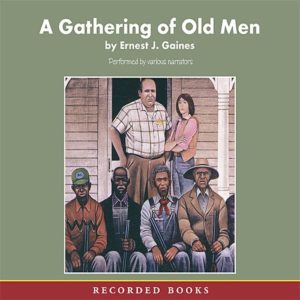Older Characters—How Do We Judge?
I have heard women in their 70s gripe about loved ones in their 90s. A friend who just turned 80 says people don’t listen to him anymore, not unless there are enough other older guys around to provide strength in numbers. In the Middle Ages, people died at what we now consider middle age. And what about those who die young? Are they not made old the day before they leave us?
My October reading included many older characters. From a taciturn man full of wisdom after a lifetime of bad choices. To a grandmother whose Korean folktales are, by turns, magical and symptomatic of illness. To a version of King Charlemagne, still brave and fierce at age 200. To a story with so many old men it’s in the title: A Gathering of Old Men by Ernest J. Gaines. It’s one of the best books I’ve read this year.
The novel, narrated by seven different people over only 200 pages, raises our empathy quotient and enables us to read the old men generously even when they say or do things we dislike. Most of the men are in their 70s and 80s. Some are white and some are Black. One man named Charlie, who is my age — 50 — repeatedly refers to himself as “half a hundred.”
The old men have gathered on a plantation in Louisiana following the murder of a white man. The story takes place in 1979. Over the course of eight hours the old Black men tell their stories to the sheriff, who is sent to investigate. Every man claims responsibility, as does Candy, a white woman who is the niece of the plantation owner.
This gathering is about “tired old men tryin hard to hold up their heads.” Not knowing “how many more years [they] got here,” they take a stand, many of them for the first time in their lives. Why they haven’t stood up previously is presented generously. Why they do now, with shotguns in their hands, is also presented generously. Why the deceased man’s family wants vengeance is presented generously. How the world is changing, evidenced by the cooperation of Black and white players on the biggest stage in the state, LSU football, is presented as a generous path to the future.
Studies have shown that reading fiction promotes empathy. We step into the shoes of characters who may be unlike us and walk around, thinking their thoughts and feeling their heartbeats while we turn the pages.
At one point in Gaines’ tale, a man named Johnny Paul explains to the sheriff why he has gathered. It’s not just for the things the sheriff can see but for the things he can’t see — for the history of the land and of the people, “for every four-o’clock, every rosebush, every palm-of-Christian ever growed on this place.” Four o’clocks are flowers that bloom in the evening, like this gathering of old men.
That’s the new piece of empathy I will keep from this story: the knowledge that every older person carries things I can’t see. They carry it in their memories, behind their eyes. My friend who isn’t yet on Social Security and recently started using a cane, she carries it there, in each unsteady step that causes her embarrassment.
My mother made it to 64. Her mother died at exactly 101 ½. On my way to where I’m going, can I be generous with myself? Can I start today, as I pull on my compressions socks, knowing the history of every raised vein.
Your Turn
1. What stories have made you more empathetic?
2. In this book, the empathy I felt for Fix made me feel more empathy toward a difficult person in my life. Who is a character who has increased your empathy for a real-live person?
3. Share your October pages. Sliced, started, and abandoned are all fair game.
October’s Pages
Poetry
Tomie dePaola’s Book of Poems, illustrated and edited by Tomie dePaola (some children’s poetry, but some for everyone)
Wade in the Water, by Tracy K. Smith
Small Poems Again, by Valerie Worth, illus. Natalie Babbitt (children’s poetry)
Picture Books and Early Readers
The Undefeated, by Kwame Alexander, illus. by Kadir Nelson (Caldecott-winner, Newbery Honor)
Bea by the Sea, by Jo Byatt
Goodnight Star, Whoever You Are, by Jodi Meltzer, illus. by Jody King Camarra (Join us Friday, November 12, for Children’s Book Club!)
A Pet for Petunia, by Paul Schmid
The People Remember, by Ibi Zoboi LINK, illus. by Loveis Wise
Middle Grade and YA
When You Trap a Tiger, by Tae Keller (2021 Newbery-winner)
Babe, by Dick King-Smith
Grownups
Wayfaring Stranger, by James Lee Burke
Song of Roland, anonymous, circa 11th century France (The epic poem is mentioned several times in Burke’s novel. This translation is by Dorothy Sayers.)
The Diary of a Country Priest, by Georges Bernanos
A Gathering of Old Men, by Ernest J. Gaines (highly recommend the audiobook, as the recording features a cast of actors)
The Girl with Seven Names: Escape from North Korea, by Hyeonseo Lee
Long Life: Essays and Other Writings, by Mary Oliver
Made Progress
Don Quixote, by Miguel de Cervantes, translated by Edith Grossman (finished part1, reading along with the boys at Overdue)
Photo by DaiLuo, Creative Commons, via Flickr. Post by Megan Willome.
Browse more Reading Generously
I loved this book. As soon as I finished, I began reading it again.”
—David Lee Garrison, author of Playing Bach in the D. C. Metro
- Perspective: The Two, The Only: Calvin and Hobbes - December 16, 2022
- Children’s Book Club: A Very Haunted Christmas - December 9, 2022
- By Heart: ‘The night is darkening round me’ by Emily Brontë - December 2, 2022



Glynn says
Interestingly enough, reading poetry has made me see more people as poets. Reading (and writing) fiction has led me, when confronting an irregular or difficult person, to imagine them as a child or teenager. And I think back to the teenagers and children I knew who were difficult, bullies or bullied, mean or even kind, and ask why.
October reading:
Fiction
The Promotion by Laura Domino
Cloud Cuckoo Land by Anthony Doerr
Billy’s War by Tony Whelpton
Non-fiction
With or Without Me by Esther Maria Magnis
Philip Roth: The Biography by Blake Bailey
The Animals in Our Lives, ed. by Catherine Lawton
Home Style Opinion: How Local Newspapers Can Slow Polarization – Joshua Darr, Matthew Hitt, &Johanna Dunaway
Poetry
The Carrying by Ada Limon
Four Texas Quartets by Mark Cole
Daughters by Brittney Corrigan
The Green Man by David Russell Mosley
Shakespeare Project
Henry IV, Part 1
The Merry Wives of Windsor
Henry IV, Part 2
Henry V
Mystery
Blind Defence by John Fairfax (British spelling of Defense)
Death the Halls by Adam Blumer
Lightning Strike by William Kent Krueger
Megan Willome says
Glynn, it’s interesting how your fiction reading (and writing) has led you in a different, but similarly empathetic, direction. Both approaches seem to be about stepping outside of ourselves.
But I have never thought of poetry as a way to connect with the poet in each person. I’m going to muse on that one.
Bethany R. says
“That’s the new piece of empathy I will keep from this story: the knowledge that every older person carries things I can’t see. They carry it in their memories, behind their eyes.” Reading grows such riches.
I love how you ended this post, Megan, thanks for all of this. I’m thinking over your questions.
Megan Willome says
Thanks, Bethany. I think one of the best by-products of reading fiction is gaining empathy.
In my multiple reads of the Harry Potter series, there is a real-life couple I refer to as the Dursleys. They are not evil—certainly not Voldemort—but they do wreak a lot of havoc from their house on Privet Drive, trying desperately to look away from the magic all around them and hurting Harry in the process.
Bethany R. says
Those connections between fiction and possible non-fictions can truly be a help to us.